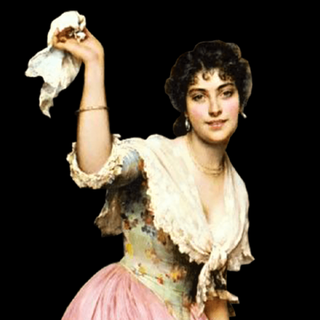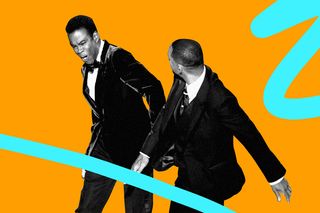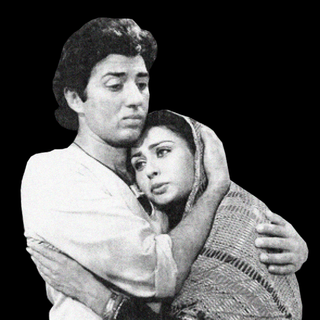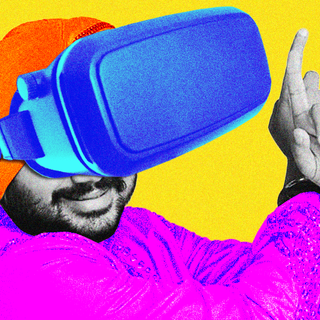
Will Smith’s Oscar ‘Smack’ Forces Us to Re‑examine the Kind of Humor We Find Acceptable
Besides compelling us to reassess the kind of humor we are willing to laugh at, the moment will, hopefully, urge us, as audiences, to examine our own biases too.

“The Oscars should pay for all of Will Smith’s legal bills. No one was talking about the show until he got involved,” stated a meme. It is referring to the “viral moment” that this year’s Academy Awards will probably be associated with for years — like “Ellen’s group selfie [in 2014] or the best picture winner mix-up in 2017,” as BBC News noted.
But the popularity of this year’s “Oscar moment” — actor-producer Will Smith slapping actor-comedian Chris Rock — has forced us to re-examine the limits of humor.
What went down at the award ceremony last night was Rock taking a dig at actor-singer Jada Pinkett Smith for her shaved head — which followed her struggle with alopecia, an auto-immune disease that can result in permanent hair loss. “Jada, can’t wait for G.I. Jane 2,” Rock jibed, referring to the titular character played by Demi Moore in 1997, who sports a shaved hairdo. The offensiveness embedded in his statement, which evidently didn’t strike out to him, was this: Moore’s decision to shave her head was an attempt at looking the part she was playing, but Pinkett Smith’s resulted from her health condition — one she has seemingly struggled with.
We live in a world where beauty norms are shoved down women’s throats before they even reach adulthood — resulting in many of them, especially those in the glamor industry, developing low self-esteem, anxiety, depression, and unhealthy eating behaviors if not eating disorders, among others. Among the numerous beauty norms plaguing society is one of thick, flowing hair being a marker of femininity — so much so that attempts at normalizing baldness in women are few and far between, with the hush-hush nature of conversations around the subject only serving to perpetuate the stigma. As a result, experiencing it can be devastating — affecting “women’s self-perception, sensuality and confidence.”
“It was a moment of transformation not of my choosing… I felt naked, exposed, vulnerable. I felt embarrassed, I felt ashamed, I felt betrayed… and then I also felt that I was participating in a cultural betrayal,” Ayanna Pressley, an American politician, had said describing her own struggle with alopecia. To her, the loss of her hair felt akin to the “loss of a limb,” she noted, adding, “I am making peace with having alopecia. I have not arrived there… But I’m making progress everyday.”
Related on The Swaddle:
Beauty Norm Rebellions in 2020 Redefined Beauty — But Didn’t Eliminate It
Pinkett Smith’s struggle may or may not have looked the same. Irrespective, she didn’t find Rock’s “joke” funny. Her immediate reaction to it was an eye-roll, which seemed to suggest a sort of exasperation at the brand of humor that seeks to make people laugh at the expense of another. People have been arguing against jokes that “punch down” for many years now. Indian comedians, too, had to reckon with the problematic content of their comedy routines in the first-half of 2021, with many of them being cancelled. Yet, comedians refuse to retire it.
The outrage against this form of humor isn’t merely a superficial endeavor to bring in a culture of “political correctness.” It goes deeper than that and causes actual harm to actual people. “[A]lthough jokes may not instantly change the world, they may affect people at an interpersonal level,” co-wrote Simon Weaver, a lecturer at the Brunel University London, and Karen Morgan, a research fellow at the University of Bristol. Citing examples, they added, “[W]omen were more likely to view themselves as objects and worry more about their bodies after viewing sexist humour… [while] exposure to sexist humour can decrease male perceptions of the seriousness of rape.”
The possible harms Rock’s routine could, perhaps, perpetuate is the normalization of making fun of women’s bodies for not subscribing to gendered beauty standards and of being insensitive to the toll different health conditions can take on people mentally and physically — besides, of course, propagating the idea that “punching down” is still acceptable since no one is going to bat an eyelid at it even at an event with as much international coverage as the Oscars.
Except, eyelids were batted, and the comedian was “smacked the s**t out of,” in his own words. Having said that, considering Smith’s act as “heroic” or as something to “look up to” will, perhaps, be a fatal flaw as we strive to move towards not just an inclusive society, but also a civil one. Smith did apologize for his actions, though. But, unfortunately, he caveated his apology by saying, “…love will make you do crazy things.” Needless to mention, normalizing violence — even in the name of “love” — isn’t the way to go about tackling offensive humor. One can hope, however, that Smith apologizing for it will, nonetheless, prevent people from aping him — in the same way that one hopes his slap, however ill-conceived, will lead comedians to re-evaluate their humor.
Rock called the turn of events “the greatest night in the history of television.” But will this slap change the course of comedy globally? Perhaps, not. But, hopefully, besides compelling us to reassess the kind of humor we are willing to laugh at and holding our favorite comedians accountable, the moment will also urge us, as audiences, to examine our own biases, if not fix our moral compasses. If we refuse to accept “punching down” as comedy, perhaps, comedians will learn to steer away from it too.
Devrupa Rakshit is an Associate Editor at The Swaddle. She is a lawyer by education, a poet by accident, a painter by shaukh, and autistic by birth. You can find her on Instagram @devruparakshit.
Related


Woe Is Me! “My Family Refuses to Accept the Age Gap in My Relationship. What Do I Do?”
